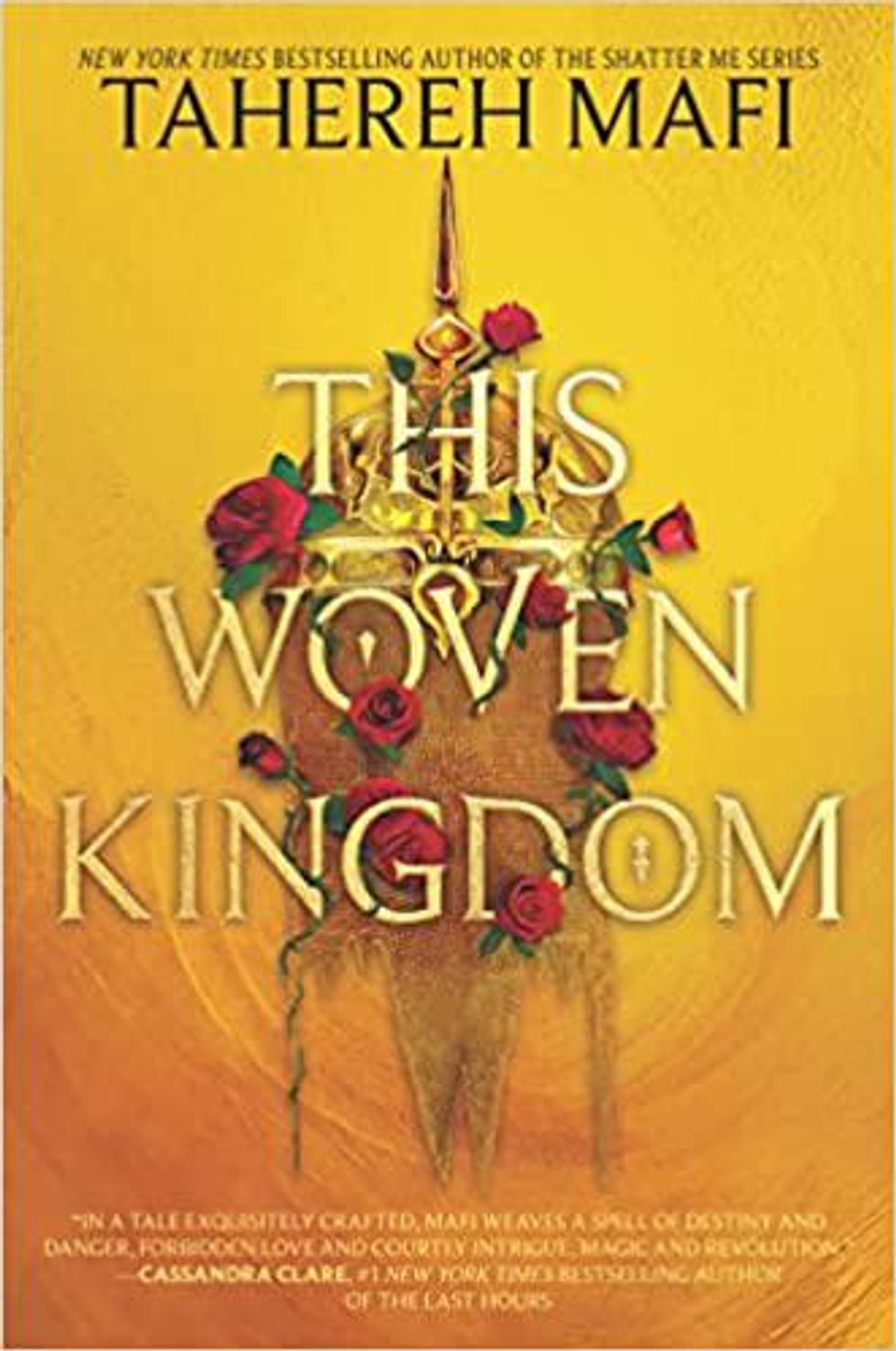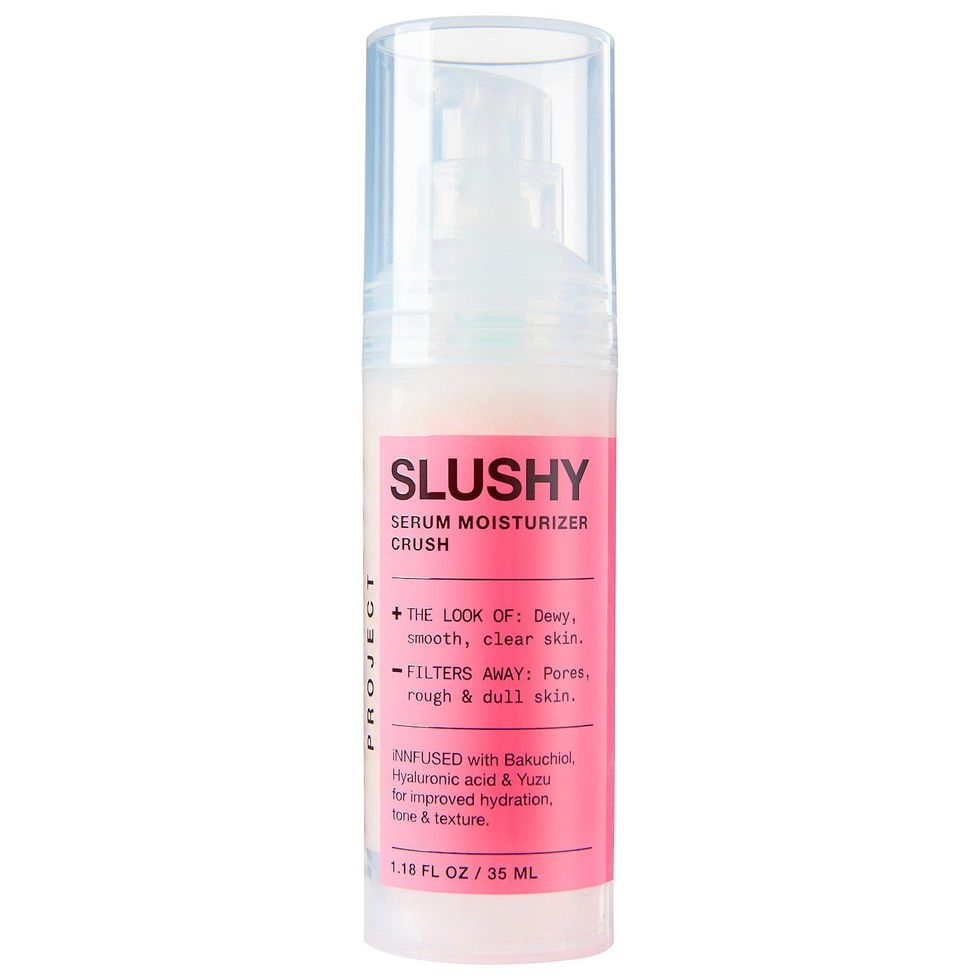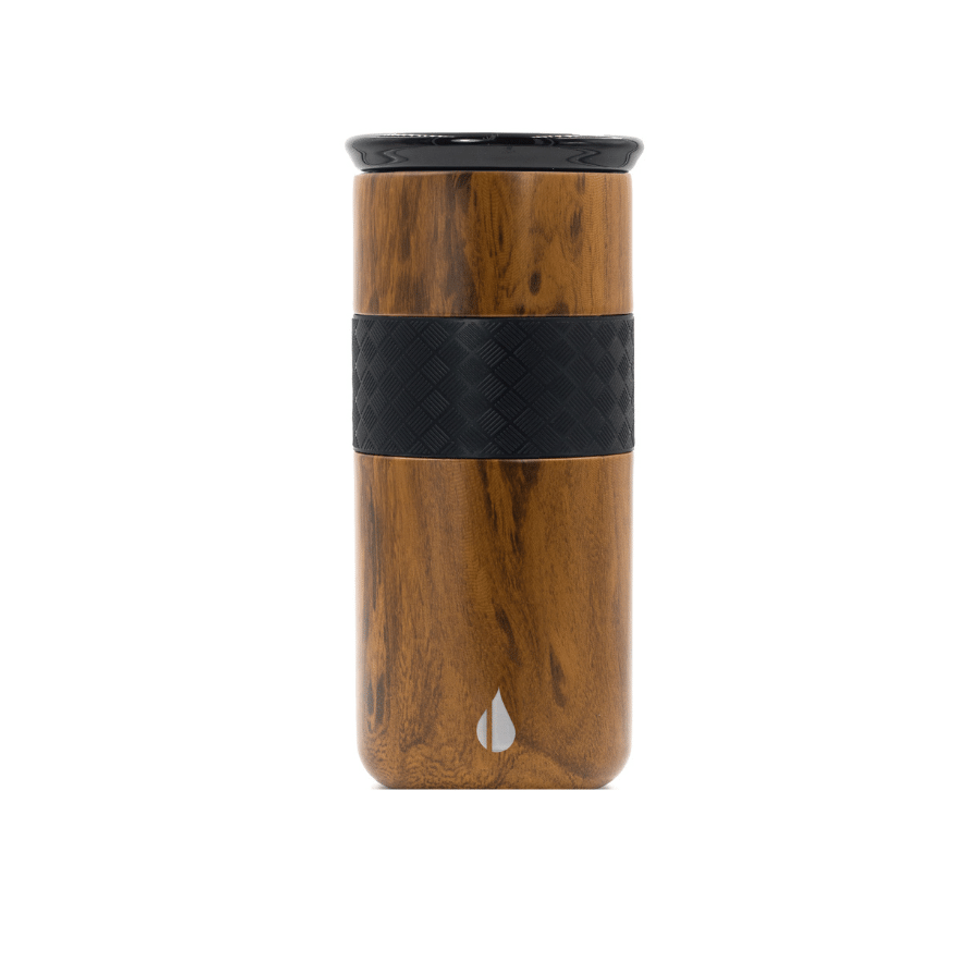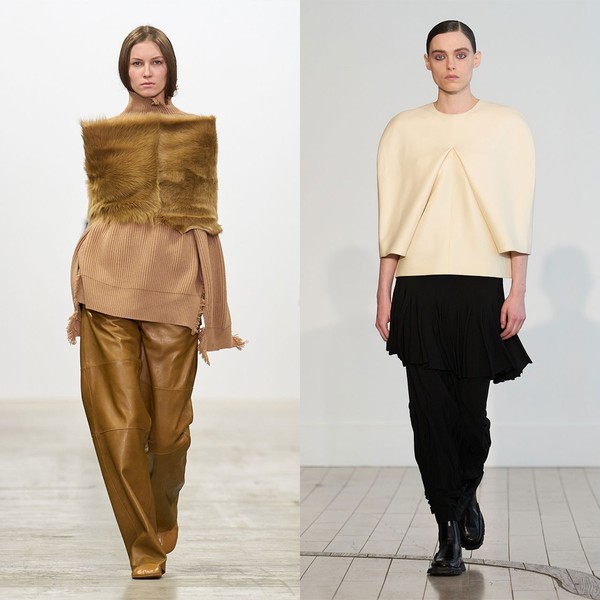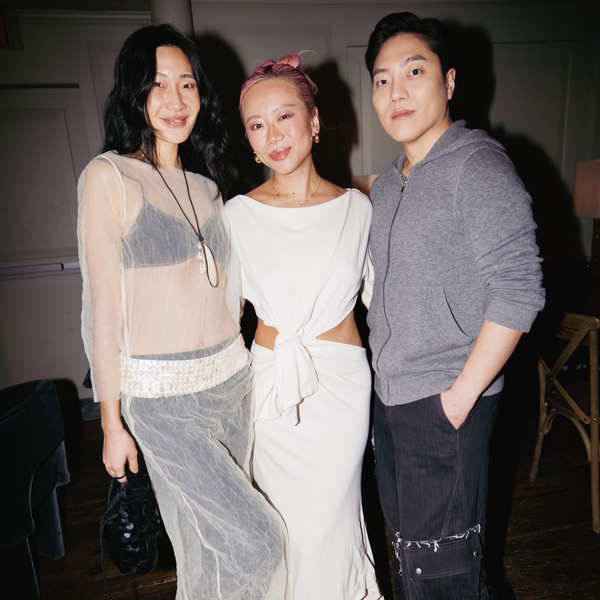This Author Thrives on Her 4am Wake Up Time & Setting Clear Boundaries
Tahereh Mafi on the habits and rituals that help her find calm amidst the chaos.
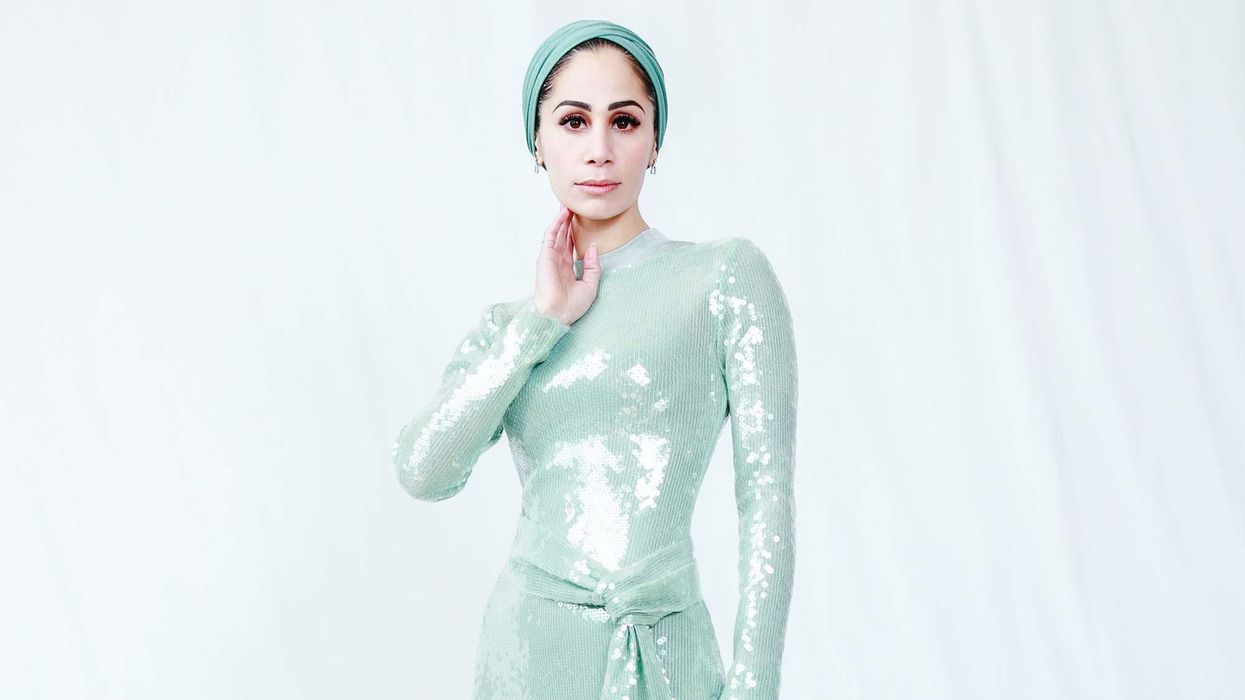
Welcome to The Simple Things, a wellness series dedicated to the routines and rituals that bring a sense of well-being to our daily lives. As the name implies, sometimes it’s not about making seismic shifts in our day-to-day—simple actions can be just as impactful for ourselves and for those in our community.
This week, we’re chatting with Tahereh Mafi, writer and author of the New York Times bestselling novel This Woven Kingdom. Below, Mafi discusses how motherhood forced her to prioritize herself, the importance of seeking community, and more.
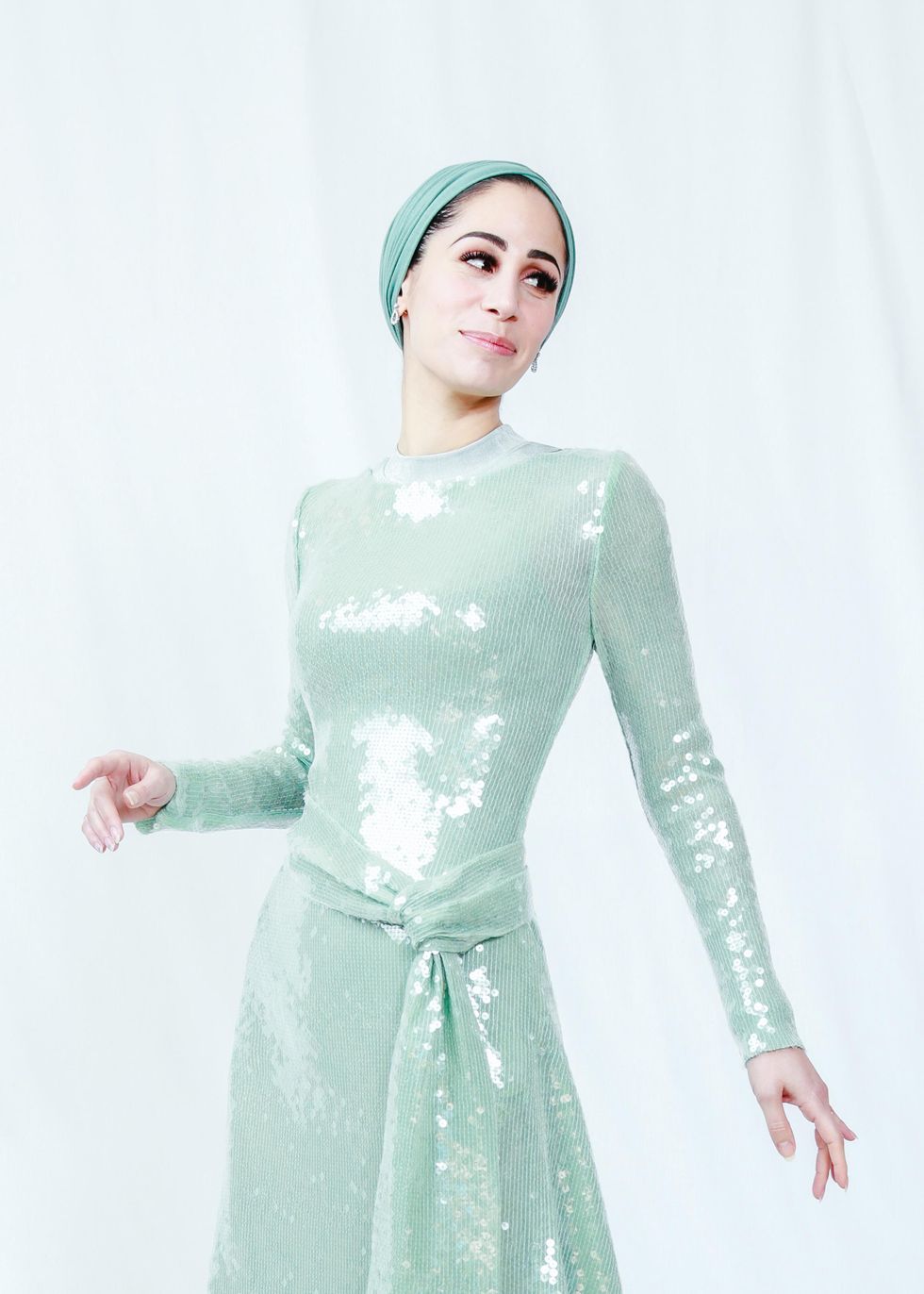
How do you fit writing into your everyday routine?
“My writing routine has evolved with my life. So depending on how much disposable time I have during the day, I've had to adapt. Right now, the best time for me to write is in the hours before dawn. These days, I wake up around four in the morning and I work before the sun comes up while the house is still quiet, before my daughter wakes up for the day. I just love it, you know? I don't have to answer any emails. Nobody's calling me. No one needs me, so I can really focus. I'm most productive during those hours.”
I'm curious—what time do you go to bed?
“It depends on how soon I can get to bed. I'm usually not in bed until about 10 PM.”
I was talking to a friend recently and she has these moments in her days that she calls her “non-negotiables.” She makes time for two or three things—like a 30-minute workout or a five-minute meditation—that are important to her every single day, no matter how busy she is. It keeps her from overextending herself to others and ensures she prioritizes herself. Would you consider writing a non-negotiable for you?
“Yes—I love it, but it’s also my job. I’m under contract, I have deadlines; it’s something I have to do. So, in that respect, it’s absolutely non-negotiable. But the things I do to carve out space for myself usually involve spending time with my family. I have a cut-off time in the morning where I stop working, go have breakfast with my husband, and get my daughter ready for the day. It's very important for me to make sure that I protect those hours and touch base with the people most important to me.
“And that happens again at the end of the day. I clock out around 3:30PM and go pick my daughter up from school. It's not entirely true that I don’t work at all, but I don't write after those hours. I’ll send a quick email if it’s urgent, but for the most part, I like to keep work and life separate.”
When your art is your job, how do you create boundaries where you're still able to be creative and you still enjoy the work that you're doing?
“It's actually something I struggle with. Often, I have back-to-back deadlines, which makes it difficult to take time to refuel. I think as an artist, it's really important to have input in order to create output. To me, that involves seeing or experiencing art in its various forms: going to a museum, reading books, traveling or literally just having conversations with people who inspire you. You have to enjoy and experience life in order to write about it.
“I have to remember to make time for that. And often that means I will carry books around with me wherever I go. So instead of reaching for my phone in an idle moment, I pick up a book. I feel like I'm stealing moments whenever I can.”
Do you have a spiritual or meditative practice that you implement into your life?
“Yes, I'm Muslim, so it's actually a part of my daily practice to stop five times a day to pray and reflect. I'm not great about doing that all the time. But the movements and motions are reminiscent of yoga and meditation, so I see the similarities in those processes.
“The older I get, the more grateful I am for those reminders to stop, be still, reflect, and be grateful. I find those moments can be really restorative like returning to a power station. It’s a chance for me to remind myself how grateful I am to be able to do what I do for a living; it's work, but it's also a privilege.”
It sounds very similar to a gratitude practice:
“Yes, absolutely. If I’m starting to feel overwhelmed, I’ll stop and make a list in my head of all the things I'm actively grateful for. It really helps to flip a switch and give me perspective.”
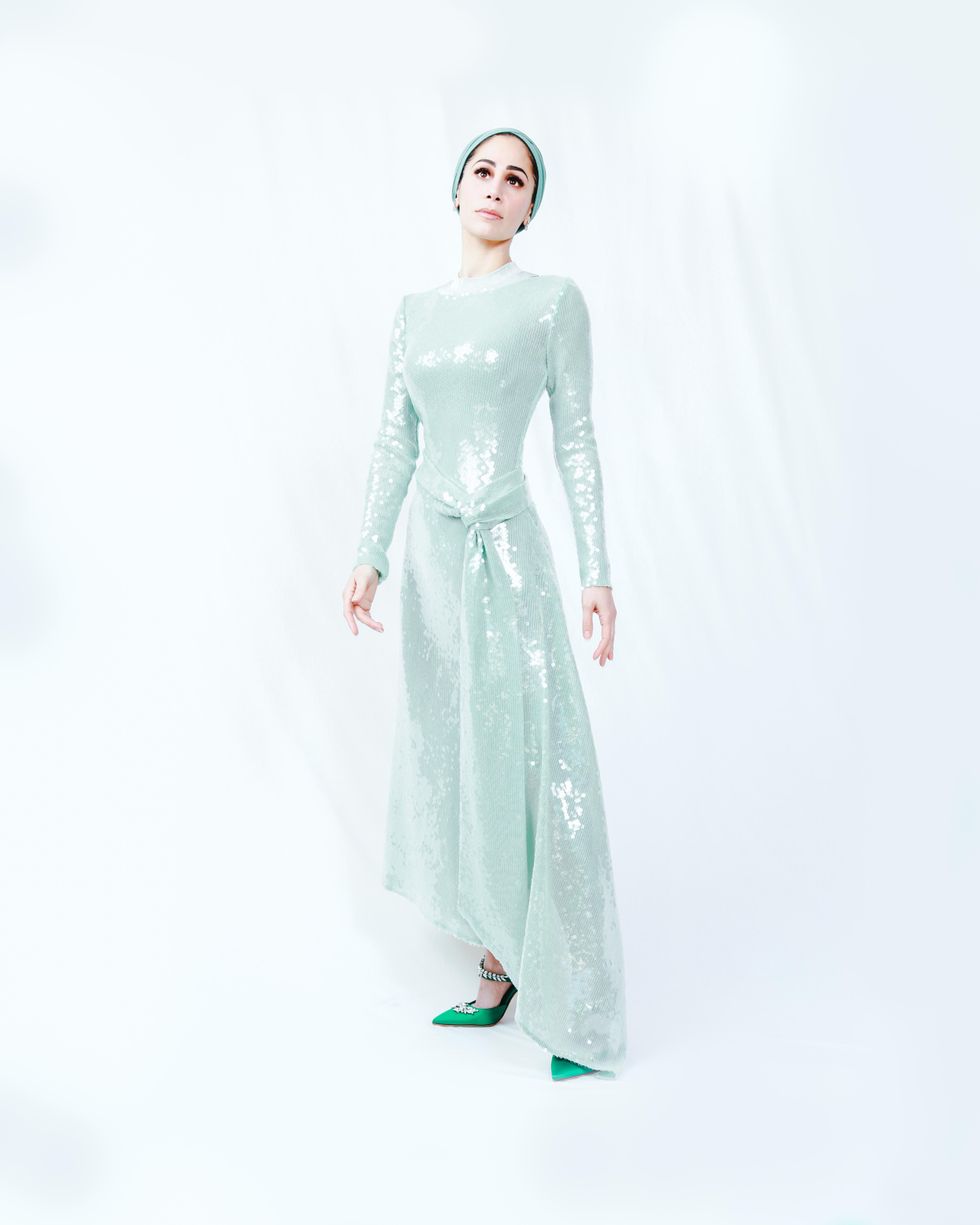
How do you wind down at the end of the day?
“I used to be the kind of person who would work without boundaries. I would work from morning till night, on the weekends—it was a problem. After my daughter was born, it became important to me to recognize that and make a change. My husband and I will either do an activity with our daughter after school or we’ll come home, cook dinner together, and spend the evening together. We’ll have storytime or we’ll go play outside until it's time to put my daughter to bed.
“After that, my husband and I have this protected time where he and I reconnect. We spend time together and sometimes that means enjoying each other's company while we read quietly on the couch for an hour. But most evenings, we'll watch an hour of a TV show and talk. Occasionally, those evenings involve dinners with family or friends. I try to keep that space clear because without those human connections, I get burnt out so quickly.”
Would you describe yourself as an introvert or an extrovert?
“I've heard some people say that you can be an extroverted introvert. It’s someone who is comfortable in social situations, but they require a great deal of time alone to recharge. I think I'm predominantly introverted. I mean, it's a self-selecting group of people who become writers; I spend most of my day being very quiet, sitting alone, and thinking. But I do love seeing my friends and I really thrive when I’m around them. I don't have a lot of acquaintances. I'm one of those people who has a few really close friends and I have conversations with them that I find invigorating.”
As someone who’s a writer and would describe themselves as an extroverted introvert, how do you find a balance between the two? How do you prevent yourself from being in your own head too much and isolating yourself when you’re really comfortable being alone?
“I'm not sure that I have a great answer to that question. I’m lucky enough to be forced into more social situations because of the people I have in my life. Whereas I think that, even a few years ago, I would have been far more inclined to spend too much time alone, which I think was detrimental to my mental health.
“In my opinion, my husband is predominantly extroverted, which is interesting because he's also a writer. But he loves to be adventurous and he's always like, ‘Let's go somewhere’ or ‘Let's do something.’ I have a great love of adventure, but he's so much more motivated to get out there. And I love him so much that I'm like, ‘Okay, let's go.’
“And with a four-year-old daughter, it's not fair to keep her inside the house. She just got to this world and wants to explore it, so I find myself forced to be more social than I might otherwise.”
I know motherhood has been transformative for you in several ways. How has it forced you to kind of rethink how you spend your time?
“It's definitely forced me to become far more efficient. Every hour, every minute matters. I don't have any wasted time in my schedule. Now, everything in our life is streamlined, which has been great because I can schedule out my days and I'm better at meeting deadlines.”
In regards to becoming more efficient, does that apply to prioritizing yourself?
“I had to quickly learn what was most important to my mental health in order to have a positive and productive day. I learned that I need quiet time for myself in the morning and that I have to actively carve out that time, which means waking up earlier. And even if I never leave my house, I love getting dressed for the day because I like to feel pulled together and it has an impact on my mental state. Understanding those things about myself has been really helpful.”
What was that discovery process like? How did you figure out what you needed in your life to make sure you’re at your best?
“Years ago, I would wake up in the morning to the sound of my daughter crying. That was my alarm clock in the morning and I would drag myself out of bed, like a zombie, and walk over to her crib. And that was how I started my day—it began with crying. It had a negative impact on my sleep and it set the tone for the rest of the day. I realized I could start my mornings like that because from there on out, I was rushing. I felt like I was behind; I felt like I was playing catch up all day long then in the evening, I would collapse and still feel like I hadn’t caught up and repeat the whole cycle the next day.
“The obvious solution to this problem was to wake up before my daughter woke up. I started waking up very early and going to bed early and it gives me enough time to get ready, exercise, shower, and do things that are important to me. Now, when she wakes up, I feel ready to meet her. I felt more in control and that I wasn’t being overpowered by my own life.”
You mentioned how throwing on an outfit helps you feel put together. Does beauty play a role in helping you feel mentally ready for the day ahead?
“My skin-care routine didn't become important to me, in a significant way, until after I gave birth because my skin went to hell. In those months, post-partum, my hormones were all over the place and I was breaking out like a teenager. I struggled with cystic acne and I didn't understand it. It was really tough and it became another mental hurdle to overcome. I didn't recognize myself when I looked in the mirror.
“I had to do a deep dive to educate myself and start learning about what was happening to me. It became important for me to take the time in the mornings and in the evenings to baby my skin and figure out what was going on. You know, age is coming for all of us. Time is coming for all of us. But that doesn't mean that we can't be gentle with ourselves as we move forward in life.”
Shop Tahereh's Picks:
Photos: Courtesy of Ransom Riggs
Want more stories like this?
10 Self Care-Centric Beauty and Wellness Launches to Make the Most of Your ‘Me Time’
Kendra Austin on the Difference Between Self-Trust and Confidence
How Cami Arboles Switched to a Values-Based Lifestyle

